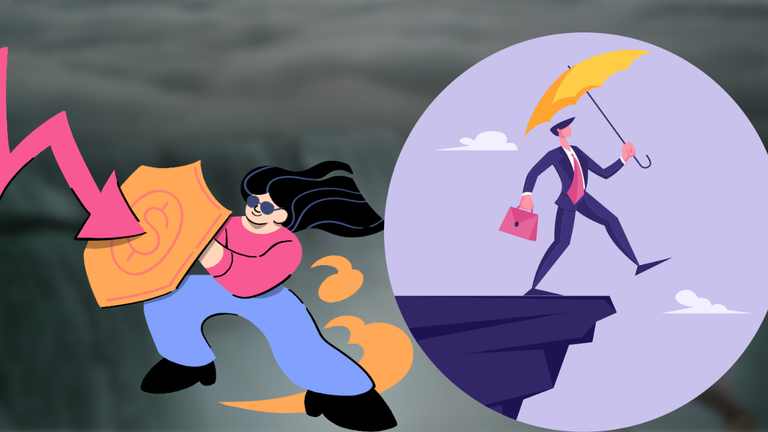
Some days ago, one of my aunts was telling me about my paternal cousin and how most of the risks he has taken over the years have not paid off and have instead resulted in a large amount of debt for him and his business.
First, I blamed him for not scrutinizing some of the risky ventures he undertook; second, I blamed him for not considering the risk-to-benefit ratio; and finally, I blamed him for failing to consider the consequences and potential rewards of these risks: would he have been able to cope if he had lost money?
Or was the potential benefit of these business opportunities be too big to actually overlook if he had chickened out because the risk were too much for him?
However, the basis of my blames could simply be terrible; I may not know what I am doing, and I believe I should not use my parameters to judge, but I did due to the pragmatic nature of my lifestyle.
These are some of the parameters I consider when deciding to take a risk. I would rather secure my position than risk it, even if it appears to be very negative and pragmatic.
Background
We all come from different backgrounds, including education, health, and mental/psychological history. Sometimes the things we have been through, the lessons we have learned, and the events in our lives shape our actions.
For example, I have experienced a lot of loss in my life, which has made me less courageous. I am not talking about money; I have suffered losses and made questionable decisions that resulted in serious consequences, and because of how bad these consequences were, I sometimes lose confidence in taking actions and making decisions.
My cousin, on the other hand, is a bold individual, a hustler, and a risk taker. Unfortunately, because he believes in himself, he has failed to make the critical second-guessing that is necessary when taking risks.
For example, I can not have $2 on hand and risk $1; what if I have a medical emergency or a pressing need that requires immediate attention? On the other hand, that risk may pay off and result in $9 in dividends; however, what if it does not?
A Typical Example
In the medical field, there is a term called "benefit outweighing risk." For example, some medications are clearly harmful to chronic conditions but beneficial in acute situations. It is similar to taking ibuprofen, which can harm the kidneys if used excessively, but in the short term, it is likely one of the best medications for inflammation and pain.
So, there are times when the benefits of taking risks outweigh the potential consequences, and we simply dive in.
Of course, everyone will stay in their comfort zones if they do not take risks. I would not say I have never taken risks; however, most of the time, I take risks where the benefits are almost guaranteed and the chances of loss are minimal. Aside from this, I consider myself to be in a losing situation.
What will the overall consequences of my loss be? What kind of long-term impact will it have on me? This is who I am. To some extent, I consider myself a coward; sometimes I am overly realistic when I should not be, and aside from having faith that is not entirely based on my efforts, but rather on the Almighty God, I am usually a little too realistic, which makes me come across as negative.
Success & Failures
My cousin has been successful in numerous endeavors in life. For example, we both worked in the same place; I was fired, while he was retained; he made a lot of money from his job and rose to the position of manager. Those losses and failures have shaped the way I approach life, which I know is sad.
Confidence & Bravery
Over the years, my cousin's overconfidence may have been excessive, and as a result, he has made numerous poor decisions over the years, invested in the wrong women, and many people have taken advantage of his kindness to ruin him financially.
He has been on a steady decline for some time now, and it appears that he has reached rock bottom after making numerous poor decisions and taking risks.
In Conclusion
We sometimes take ridiculous risks, but when they pay off, we become geniuses. Only those who have lost are considered failures. I have said it numerous times: my level of risk is primarily determined by my position, which is why no one can act as a financial advisor to another person. We all have different races, and most of the time, taking the right risk is all it takes to make you; however, some of them will completely ruin you, but if you do not try, how will you know?
The world is most likely where it is because of people who have taken risks, and the unfortunate side effect is that sometimes the most unlikely of risks can yield results.
Interested in some more of my works
Is it Easy To Make Money?
Nigeria: A Unique Business Market & Industry
Virtual Bank Apps In Nigeria: An Experience Of Gamification
How To Find The Next "BIG" Meme Coin
Personal Finance: Achieving Intentional "Saving" Goals
Playing The Survival Game: Human Nature In Introspection
"Un-PAYING" The Debt You Owe

Posted Using InLeo Alpha



